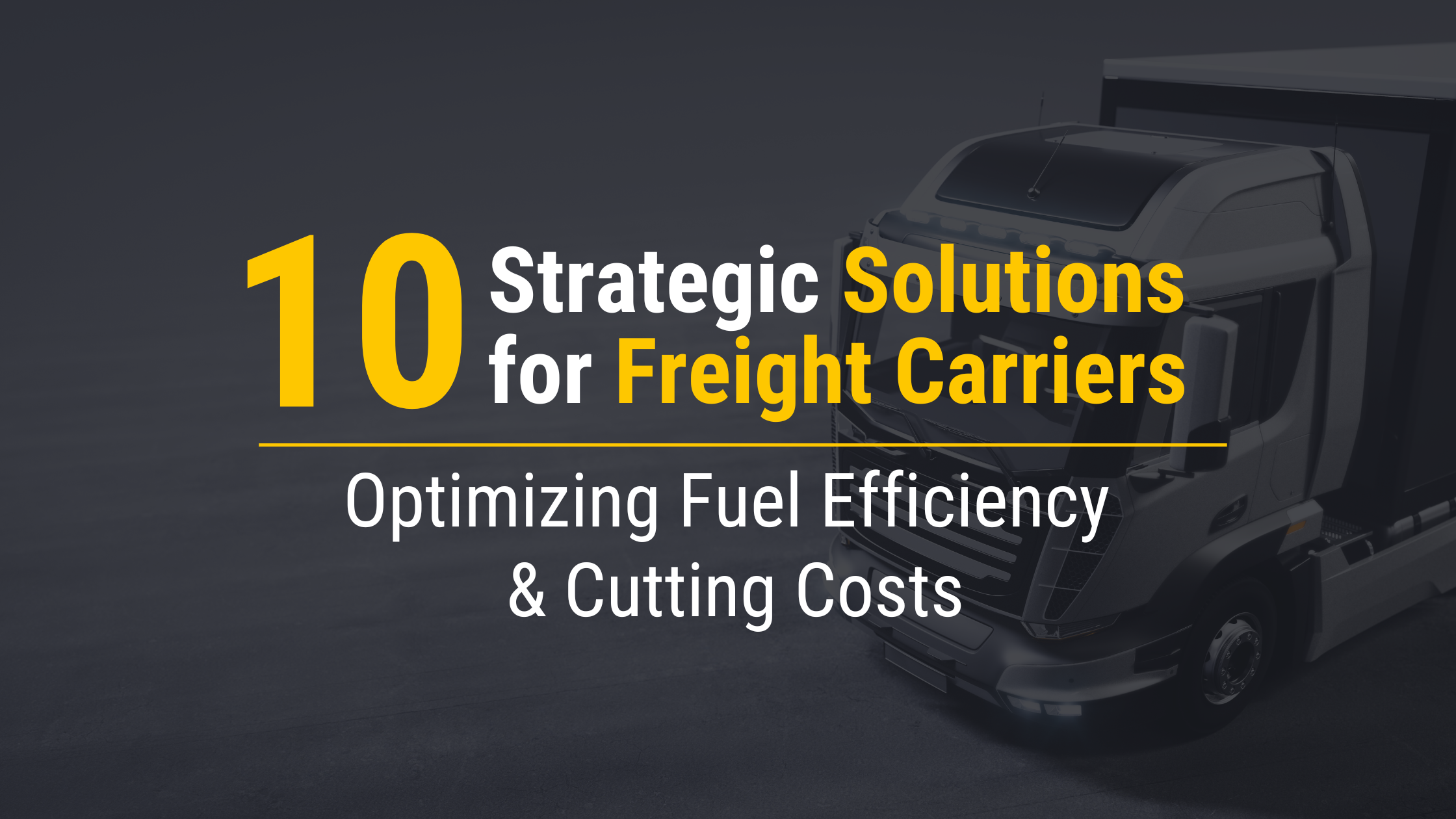In the trucking industry, fuel costs are inevitable. Trucks need fuel to run, and because they need a lot of it, fuel costs make up a significant portion of expenses. Rising diesel prices have made it critical for companies to find ways to optimize fuel efficiency to ensure competitiveness and sustainability, even in tough market conditions. Here are several strategic approaches freight carriers can adopt to help cut fuel costs.
Add a Fuel Management System
Fuel management systems allow for real-time monitoring and analysis of fuel consumption, helping find opportunities to optimize fuel usage and reduce costs. This technology helps carriers adjust routes, monitor driving habits, and manage fuel inventories effectively. You can find some popular fuel management systems here.
Optimize Routes
Intelligent routing solutions help carriers plan the most fuel-efficient routes, avoiding traffic congestion, reducing idling time, and minimizing distances traveled. Prioritize the use of technologies that incorporate real-time traffic data and weather conditions to enhance route optimization. This type of tech is relatively easy to implement and use, so it’s a natural first step when you’re aiming to reduce fuel costs.
Choose a Fuel Card Program With Perks
If you’ve got to buy fuel, shouldn’t you take advantage of any rewards that could come along with it? Enrolling in a fuel card program like Express Freight Finance’s that comes with extra perks can help carriers not only save directly on fuel costs, but also access other discounts like insurance discounts, maintenance discounts, and equipment discounts. Want to learn more? Click here to find more information on our fuel card program.
Stay Up-to-Date on Routine Maintenance
A well-maintained truck is more fuel efficient than one that hasn’t been maintained. Keep up with engine maintenance, check alignment regularly, and be sure that tires are always properly inflated to make trucks more fuel-efficient. Regular maintenance has the added benefit of heading off large repair costs and the downtime those repairs lead to.
Invest in Aerodynamic Solutions
Adopting aerodynamic solutions like trailer skirts and roof fairings can significantly reduce drag and improve fuel efficiency. Investing in lightweight materials and design improvements can also contribute to reduced fuel consumption and increased payload capacity.
Consider Alternative Fuels
With regulatory changes on the horizon and diesel prices sky-high, now is as good a time as any to think about alternative fuels. Weigh the pros and cons of alternative fuels like natural gas, biodiesel, and electricity. The initial investment costs are high, but since the industry is being pushed towards alternative fuels anyway, it may be worth it in the long run.
Improve Load Management
Load management, or making sure trucks are loaded efficiently, with the load’s weight distributed evenly, can go a long way toward reducing fuel costs. Consider a load management software program that will help you fill trucks to reduce extra trips and load them to maximize fuel efficiency.
Incentivize Fuel Efficiency
The way a truck is driven can have a huge impact on its fuel efficiency. Smooth braking, reducing idle time, and sticking to speed limits can all make a big difference. Train drivers to operate their truck in a way that’s more efficient, and create incentives for drivers to drive in a way that’s more fuel efficient.
Reduce Idle Time with Technology
Idling consumes fuel, costing the carrier money without earning any. Idle reduction technologies such as automatic engine shutdown and auxiliary power units can help reduce fuel consumption during idling periods. Technology can be very helpful in reducing idling time, but good old-fashioned driver training can make a big difference, as well.
Upgrade Your Fleet When It Makes Sense
As equipment gets older, it tends to be less fuel efficient. Monitor fuel efficiency in each truck and consider replacing it with newer, more fuel-efficient equipment when regular maintenance and truck upgrades are no longer keeping a truck in line with the ideal fuel mileage for your fleet. Modern, fuel-efficient engines and technologies ensure long-term savings and environmental benefits.
Conclusion
Optimizing fuel consumption is important for the profitability and sustainability of freight carriers. By integrating technology, conducting regular maintenance, optimizing operational practices, and investing in training and upgrades, carriers can significantly reduce fuel consumption and costs. These strategies not only contribute to financial savings but also promote environmental conservation and sustainability. Adopting a multifaceted approach to fuel efficiency is a win-win for freight carriers and the environment.






